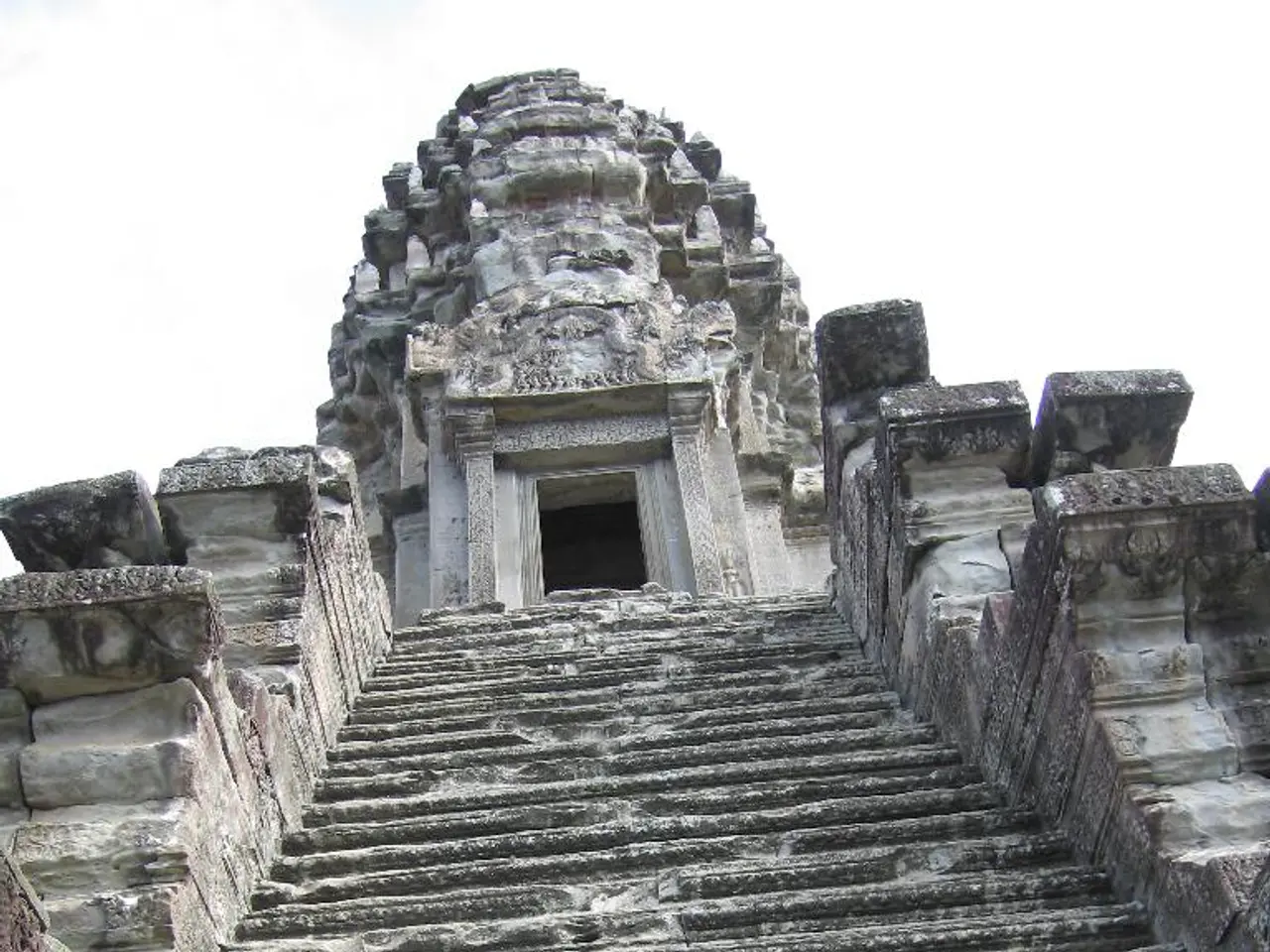Exploration of the Mediterranean: Delving into History, Culture, and Interconnectedness
The Mediterranean region, a vibrant crossroads where East met West, has a rich history of cultural exchanges and trade networks that significantly shaped civilizations across continents. Here, we delve into five key destinations that illustrate this dynamic intersection.
- Constantinople (modern Istanbul)
As a critical terminus of the Silk Road, Constantinople linked Asia and Europe, serving as a hub where goods like silk, porcelain, spices, and glassware were exchanged alongside ideas, languages, and religions. This city connected overland routes from China and Central Asia with Mediterranean trade networks, facilitating a rich cultural amalgamation between East and West.
- Mesopotamia and Egypt
Relations between ancient Egypt and Mesopotamia from around 4000–3000 BCE exemplify early East-West cultural exchanges. Mesopotamian influences permeated Egyptian art, architecture, technology, religious imagery, economic practices, and possibly the development of writing systems. These exchanges illustrate early diffusion of knowledge and cultural elements across the Middle East.
- The Central Mediterranean, including Sicily
The central Mediterranean was both a trade and conflict zone involving Greeks, Etruscans, and Carthaginians. Greek colonists in Sicily, such as those in Syracuse and Gela, contributed to cultural synthesis, spreading artistic styles and integrating Mediterranean networks. Though trade fostered cultural interaction, competition for dominance also led to conflict, highlighting the complex interweaving of commerce and culture.
- The Maritime Silk Road through the Red Sea and Indian Ocean
Maritime routes connected the Mediterranean world to India, Arabia, and East Africa, complementing overland Silk Road routes. These connections underscore the longstanding importance of Mediterranean-Indian Ocean exchanges in cultural and commercial exchanges.
- Central Asian Silk Road Cities (Today’s Five Stans)
The “Five Stans” of Central Asia—Turkmenistan, Uzbekistan, Tajikistan, Kyrgyzstan, and Kazakhstan—were essential Silk Road centers where East and West met. Cities like Samarkand and Bukhara witnessed the mingling of Persian, Turkic, Chinese, and Hellenistic cultures through trade, religion (Buddhism, Islam), and the transfer of technologies and artistic traditions.
These destinations demonstrate how the Mediterranean region was a linchpin in ancient East-West cultural exchanges, encompassing trade in goods and the vital transfer of ideas, technologies, religions, and artistic influences. This complex web of connections helped shape the development of civilizations on both continents over millennia.
Fast forward to the present day, and the Mediterranean's rich history continues to be celebrated in various ways. Restaurants like Restaurant 360° in Dubrovnik serve contemporary Mediterranean cuisine where dignitaries once dined between empires. In Marseille, every immigration adds another layer to the city's living symphony, while Andalusian garden design can be found in Dubrovnik's courtyards.
Hotels such as Hotel Villa Oniria in Granada, Villa Dubrovnik, and the Four Seasons Sultanahmet in Istanbul offer luxurious stays steeped in history, with the Parador de Granada nestled within the Alhambra's red walls and the Four Seasons Sultanahmet built on Byzantine Great Palace ruins. The Grand Bazaar in Istanbul, a 500-year-old marketplace, showcases hidden ateliers where Armenian craftsmen work in six-foot-wide storefronts.
Moreover, the culinary scene reflects this fusion of cultures. At At the Intercontinental Marseille Dieu, you taste this fusion at its most refined, while Funky Gourmet in Athens serves modern interpretations of ancient Greek dishes using molecular gastronomy techniques. In Seville's hidden tablaos, the staccato of flamenco heels against tile carries the raw memory of exile and return. And in Istanbul, the call to prayer and ferry horns fill the air, accompanied by the scent of cardamom and sea salt.
The Mediterranean's history of cultural exchange continues to resonate, shaping the region's identity and offering a unique blend of flavours, art, and architecture that draws visitors from around the world.
- The vibrant city of Istanbul, with its rich history as Constantinople, serves as a testament to the fusion of lifestyles, showcasing the blending of food-and-drink traditions from various continents, due to its strategic position as a trade hub along the Silk Road.
- The Mediterranean cuisine in restaurants like Restaurant 360° in Dubrovnik reflects the region's travel history, as dignitaries once dined between empires on the same dishes, demonstrating the enduring impact of ancient East-West cultural exchanges on today's gastronomic offerings.




